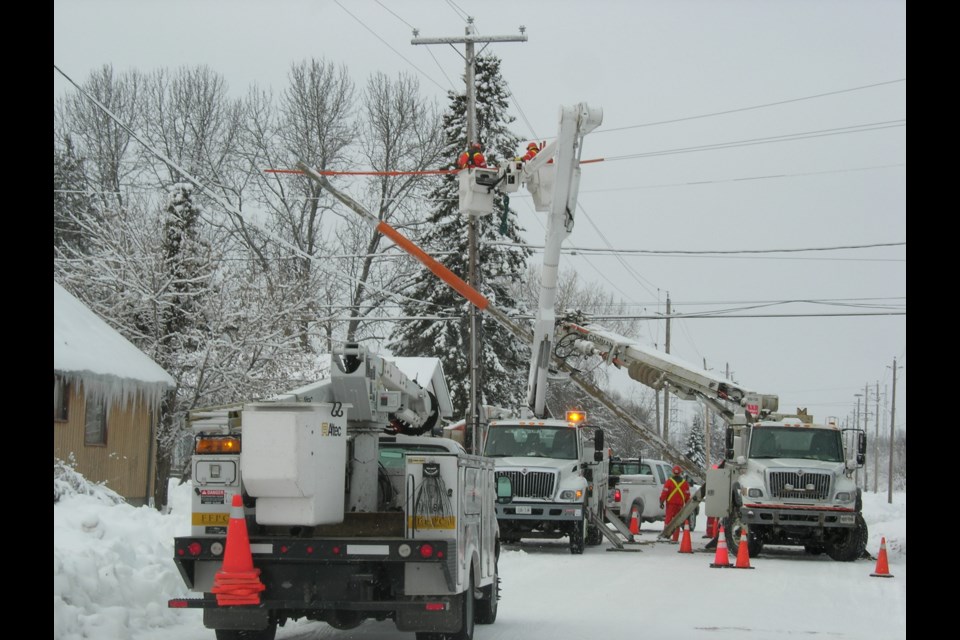FORT FRANCES — The town is looking at the possibility of having a self-contained electrical grid.
Town council voted on Monday to pass a resolution awarding Siemens Canada nearly $300,000 to undertake the feasibility study for a micro-grid in Fort Frances.
Joerg Ruppenstein, the president and CEO of the Fort Frances Power Corporation, said the whole point of the project is to explore leveraging electricity as a means to spark economic development, specifically from implementing a micro-grid.
He said a micro-grid is basically an electrical power system that can give a town like Fort Frances the ability to function independently from the provincial power grid, kind of like an energy island.
“The system can connect to the provincial grid under normal operating circumstances,” he said. “If there's ever a catastrophic failure or planned outages, where we would be disconnected from the grid, a micro-grid system would allow the community and all electrical customers to still have a supply of electricity to resume business and their daily activities.”
He said the study will figure out how to leverage the advantages Fort Frances has in terms of electrical infrastructure.
“We've got a fairly compact service territory. We're only about 25 square kilometres in our whole service territory and we own the electrical infrastructure as far as the poles and wires and transformers [go],” he said.
Ruppenstein said to the best of his knowledge, a potential Fort Frances micro-grid would be among the first of its kind in all of Canada.
He said this could be a great feature to promote economic development for the town as a steady source of electrical supply could be attractive for businesses.
“A micro-grid could be used to set us apart by essentially [offering] city-like reliability in the far north,” he said. “So a customer that is very dependent upon having a high degree of up time [for] the electrical supply, we would be able to offer that right here in the in the remote north.”
He said right now in Northern Ontario electrical systems are designed to have electricity come from a single supply point, which means anytime there is an issue communities go dark.
“So every year or two, it's inevitable that at some point, the transmission lines have to be worked on and then we spend six to eight hours sometimes in the dark and to us that's really not acceptable anymore in in this day and age,” he said.
Ruppenstein said Fort Frances has among the province's lowest rates of electricity right now for residential and small business customers.
“We would like to explore the feasibility of being able to extend a below-market price offer to industry in Fort Frances, so that we can attract industry to come back to replace a lot of the jobs that were lost due to the closure of the mill,” he said. “One way is with the establishment of a of a micro-grid.”
“If you draw a circle around our community, we've got generation, we've got the poles and wires to attach to our customers and with some intelligence, some control, we can actually continue to supply our customers with electricity in the event of being having to be disconnected from the provincial grid,” he said.
He said the study will also look at how a micro-grid could provide resiliency by essentially storm proofing the community.
“So heaven forbid we have an ice storm or something come through the area and our transmission supplies are impacted, we could still function as a community and people can go about their daily lives,” he said.
Ruppenstein said the study should be completed by the end of the year, but there would still be many steps and planning required before any of it could become a reality.
According to the town, the total budgeted amount for this project is $400,000, with 87.5 per cent of the project cost covered through FedNor grants, which were given at the end of 2021, up to a maximum of $350,000 and up to $50,000 by Fort Frances Network Services Corporation.
